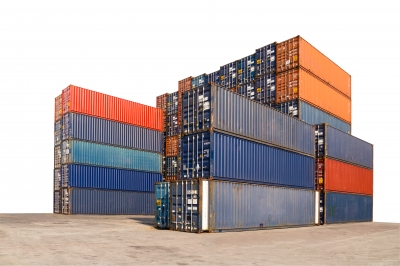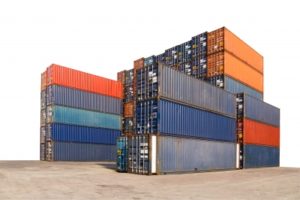The Philippine Senate Blue Ribbon Committee has approved the suggestion of Senator Franklin Drilon to draw up a resolution proposing to amend two administrative orders (AOs) in order to pave the way for containerized cargoes to be included in the current pre-shipment inspection (PSI) program of the Bureau of Customs (BOC).
Committee chairperson Richard Gordon in a recent hearing approved Drilon’s proposal to amend AOs 243 and 243A that created the system for the bulk and break bulk cargo clearance enhancement program of BOC. Under the program, bulk and breakbulk cargoes for export to the Philippines must be inspected at the port of origin by an accredited surveying company for quality, quantity, and dutiable value.
READ: BOC revives plan to require pre-shipment inspection on containers
Echoing BOC Assessment and Operations Group (AOCG) deputy commissioner Atty. Edward James Dy Buco’s statement during the same hearing, Drilon said that if pre-shipment inspection had been done at the port of loading, the P6.5 billion worth of illegal drugs that recently passed through BOC undetected would not have happened. The shipment, which contained 605 kilograms of methamphetamine hydrochloride that were seized in raids on warehouses in Valenzuela, has been the subject of several inquiries by Congress.
BOC Assessment and Operations Coordinating Group (AOCG) deputy commissioner Atty. Edward James Dy Buco, during the same hearing, suggested asking President Rodrigo Duterte to amend the two AOs, issued in 2008 and 2009, to allow coverage of containerized cargoes.
Dy Buco said it is the “most immediate and best solution” to address the problem of cargoes slipping undetected by BOC. Dy Buco explained that PSI is done by third-party surveyors that will be “present even during the loading of the cargoes in the warehouse…up to the time that the vessel leaves the port of origin.”
Drilon, in response, proposed to craft a bill that will convert the AOs into law, to give teeth to the program and prevent “the whim of whoever is in power to change the system.” He wants the program to be mandatory, since the Customs Modernization and Tariff Act (CMTA) only provides for its discretionary implementation.
The senator’s suggestions are part of his proposed system reform measures in BOC to prevent, if not avoid, anomalous incidents such as the importation of illegal drugs from happening in the future.
“I would like to believe that this is an effective way of preventing occurrences of this nature or at the very least, minimizing it,” Drilon said.
Dy Buco said the current PSI program for bulk and breakbulk, which started in 2010, already covers “about 60% of all cargoes coming into the Philippines.”
He added that BOC had already conducted three public consultations on expanding the program to cover containerized cargoes, but the idea met objections from some sectors.
Last May, AOCG in a public consultation presented to accredited surveyors, stakeholders’ organizations, and companies the draft presidential AO that would extend the PSI program to containerized cargoes.
Former BOC spokesperson and chief-of-staff Atty. Mandy Therese Anderson said BOC’s plan to extend the program to containerized cargoes is “due to the large number of misdeclared and undervalued shipment.”
The plan, she noted, is an initiative of both BOC and the Office of the President, noting that discussions started in July last year.
It can be recalled that BOC in 2014 had also intended to impose PSI, also called load port survey, on containerized and non-containerized cargoes. But the plan became controversial mainly due to the issue of who would pay for the service, with some groups suggesting that the government subsidize the inspection fee to allay costs. The plan was later shelved amid the port congestion crisis that year.
Buhay Party-list representative Lito Atienza earlier filed House Bill No. 6220, which calls for the compulsory advance clearance of all foreign cargo headed for the Philippines. Under the bill, the exact nature of all imports, including their quality, quantity, and price, would be checked and verified at the country of origin.
Atienza said PSI would enable the BOC to collect accurate import duties and taxes and surpass income targets. He added that PSI would benefit legitimate importers, noting, “They will avoid costly product defects and get shipments faster without having to spend for kickbacks.”
The lawmaker had earlier pushed to include mandatory PSI in the CMTA.
Image courtesy of satit_srihin at FreeDigitalPhotos.net






